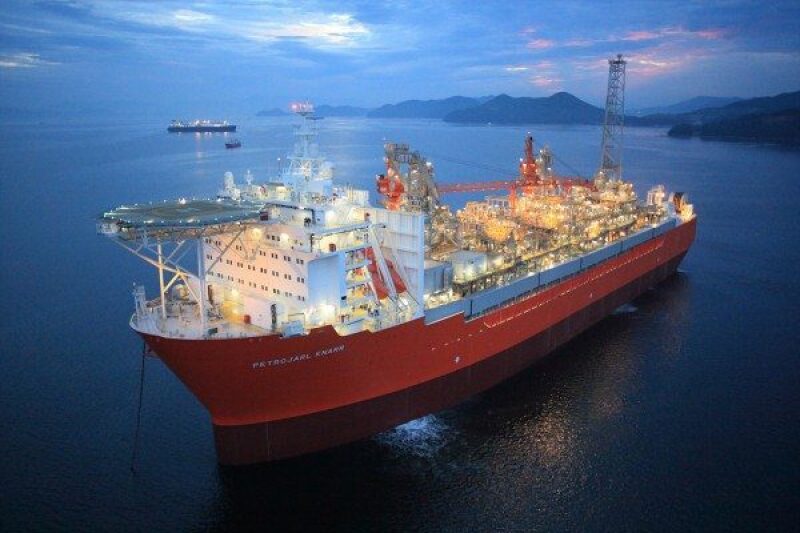Equinor and Ithaca Energy are moving forward with their $3.8-billion offshore Rosebank field development project after reaching a final investment decision and securing government approvals.
The UK government and the North Sea Transition Authority gave permission to the Norwegian energy provider and the UK-headquartered Ithaca—which hold 80% and 20% stakes in the field, respectively—to begin developing the large untapped oil field located 130 km northwest of the Shetland Islands. The field was discovered in 2004.
“Developing the Rosebank field will allow us to grow our position as a broad energy partner to the UK while optimizing our oil and gas portfolio and increasing energy supply in Europe. Rosebank provides an opportunity to develop a field within the UK Continental Shelf, which will bring significant benefits to Scotland and the wider UK,” said Geir Tungesvik, executive vice president of projects, drilling, and procurement at Equinor.
The field’s total recoverable resources of about 300 million bbl will be developed in two phases, with Phase 1 targeting an estimated 245 million bbl. At its peak, the field is expected to produce 70,000 BOE/D after startup in 2026 or 2027 using the Petrojarl Knarr floating production, storage, and offloading (FPSO) vessel.
According to the environment statement filed with the UK government, Phase 1 comprises drilling four production and three water-injection wells, subject to learnings from initial wells. Phase 2 will involve drilling up to three production and two water-injection wells. New flowlines will connect the wells to the Petrojarl Knarr FPSO for hydrocarbon processing. Gas will be exported via a new gas export pipeline to the existing West of Shetland Pipeline Systems. Oil will be offloaded using tankers.
The field, said Equinor, is being developed in compliance with the North Sea Transition Deal, an agreement between the UK government and the offshore industry. The company acknowledges that “while there is a continued, though over time reducing the need for oil and gas, the remaining demand for oil and gas must be met with the lowest emissions possible.”
Compared to other oil fields, Rosebank will be optimized to reduce carbon emissions from its production through FPSO electrification. Reuters reported that Equinor said the earliest the field would be electrified is 2030. With electrification, the Rosebank lifetime upstream carbon dioxide (CO2) intensity is estimated to decrease from 12 kg to about 3 kg CO2/BOE, according to Equinor.
Offshore services provider Altera Infrastructure was awarded by Equinor a bareboat charter and an operations and maintenance contract related to the Petrojarl Knarr FPSO. The vessel will be deployed on the Rosebank field on a 9-year firm contract, with options for up to 25 years.
Petrojarl Knarr FPSO was built by Samsung Heavy Industries in South Korea and delivered in 2014. It had been operating for Shell in the Knarr field in the northern part of the North Sea from 2015 until May 2022.
According to Altera, the FPSO is a relatively new and modern asset, and it was constructed to allow for electrification, which would reduce operational CO2 emissions, and additional features such as a vapor recovery system and a closed flare on the FPSO. The vessel has space for electrical equipment in its mooring turret and deck.
The vessel is undergoing life-extension work, field-specific modifications, and enhanced energy efficiency. It also is being made ready for electrification at Drydocks World in Dubai. Altera awarded Aker Solutions the engineering, procurement, and construction (EPC) contract for a combination of work with new build, demolition, and life extension (hull, marine systems, and topsides) required for the FPSO to be kept on the field for 25 years without drydocking. The EPC work is scheduled to be completed at the end of 2025.
The engineering, procurement, construction, and integration (EPCI) contract for the FPSO’s turret and mooring system was awarded to Bluewater Energy Services by Hyundai Heavy Industries. According to Bluewater, the system is a key component of the project. It will be one of the largest ever designed and built, about 80 m in height, with a process manifold/turntable of about 34 m in diameter.
Odfjell Drilling was awarded a rig contract with an estimated value of $328 million, including integrated services, modifications, and options. The Deepsea Atlantic mobile rig is scheduled to start a seven-well drilling campaign in the second quarter of 2025. In addition, four single-well options are included, according to Equinor.
TechnipFMC was awarded the integrated EPCI contract for the project’s subsea production systems, umbilicals, risers, and flowlines, with an estimated value of around $500 million for the local content part. The company estimates that more than half of the contract value will be generated from local activities across the UK, with a large portion in Scotland.


